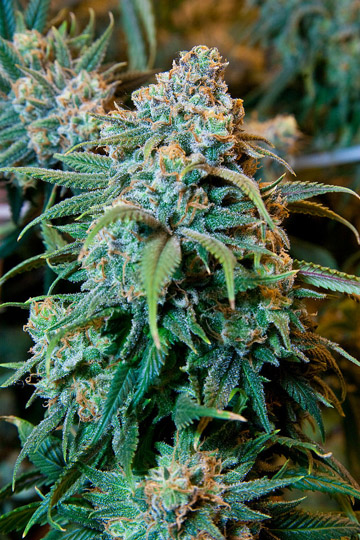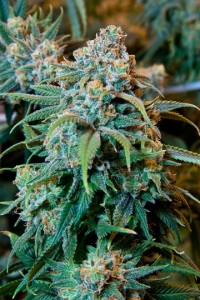Medical cannabis regulation changes create new picture


The easing of ownership requirements would facilitate the process of raising capital from abroad to start operations and recruit human resources with the needed expertise on the cultivation and elaboration of medicinal cannabis products. (Credit: Wikipedia)
The new regulations for medical cannabis recently adopted by the Puerto Rico Department of Health set more flexible ownership requirements for all cannabis establishments, create new licenses for cannabis transportation, storage and distribution while opening new opportunities for the growing medical tourism sector.
“Although the new regulations significantly increase the cost of some of the existing licenses, they also facilitate securing external capital and pave the way for hospitals that wish to enter the medicinal cannabis market for visiting foreign patients,” said Goodwin Aldarondo, president of Puerto Rico Legal Marijuana, a nonprofit organization with the goal of educating others about the legal considerations related to medicinal cannabis in Puerto Rico and providing seminars for the professional development of anyone interested in joining the cannabis industry.
“It is important for all entrepreneurs and health professionals interested in the issue of medicinal cannabis to carefully analyze the new regulations,” he added.
The Puerto Rico State Department gave the green light to the new regulation on July 8, substituting Regulation 155, which was previously enacted in January.
New licenses and ownership changes
As part of the regulation changes, a new set of licenses have been created for business interested in the transport of the cannabis plant and its products ($30,000), storage facilities ($35,000) and distribution ($75,000,) said Aldarondo. Aside from the new licenses, Aldarondo explained that licenses for doctors, cultivation, manufacturing (processing of cannabis plants and product fabrication) and dispensaries for the sale of products to patients remain in effect.
Furthermore, Regulation 8766 requires anyone interested in working in the medical cannabis industry to obtain a new occupational license. To attain the license, the individual must take a course approved by the Puerto Rico Health Department and pass and a related examination with a score of more than 70 percent.
In terms of cannabis businesses’ ownership structure, the new regulations allow nonresident investors to become owners of up to 49 percent of a local medical cannabis establishment dedicated to the cultivation, processing, laboratory or dispensary. However, majority stockholders must be local residents. Previous regulations limited ownership to individuals residing in Puerto Rico for the last two years.
Aldarondo anticipated that the easing of ownership requirements would facilitate the process of raising capital from abroad to start operations and recruit human resources with the needed expertise on the cultivation and elaboration of medicinal cannabis products.
Medical tourism opportunities
The repealed Regulation 155 contemplated in a non-specific manner the possibility of providing treatment with medicinal cannabis to visiting foreign patients, something corrected in the new Regulation 8766.
“The integration of medicinal cannabis opens new business opportunities in medical tourism for both doctors and hospitals,” said Aldarondo.
New regulations allow nonresident patients to obtain and consume medicinal cannabis by complying with certain conditions. If the patient comes from the United States mainland, they must possess a valid patient card from a state that authorizes medicinal cannabis.
Said state must require, as Puerto Rico does, a doctor’s recommendation. The medical condition to be treated must be one of those recognized in local regulations. The patient card must have a photo, expedition date and be currently valid. Lastly, the patient will need a recommendation from a doctor in Puerto Rico.
If the patient does not come from the United States, they must present medical evidence of the condition to be treated and obtain the recommendation of a certified doctor in Puerto Rico.
“We assume that the criteria for visiting foreign patients will be the same as for residents of states where medical cannabis is not yet recognized,” said Aldarondo.
Looking at the Colorado model
Puerto Rico Legal Marijuana is organizing an educational trip to the state of Colorado for those interested in obtaining more information on the medical cannabis industry from Sept. 12-16. Participants will visit cultivation centers, dispensaries, cannabis extraction facilities, treatment centers and product manufacturing facilities.
During the trip, they will attend seminars on legal aspects, lighting systems, security, fertilizers and pesticides. The Puerto Rico Supreme Court has approved the course for 21 credits of continuing professional education for lawyers.
“This trip to Colorado is the first of a series, where participants will have the experience of seeing up close the medical cannabis industry and obtain invaluable information on the best practices for each phase, from seed to sale,” Aldarondo said.
Regulations in the state of Colorado will also be analyzed and compared to those enacted by the Puerto Rico Health Department.














